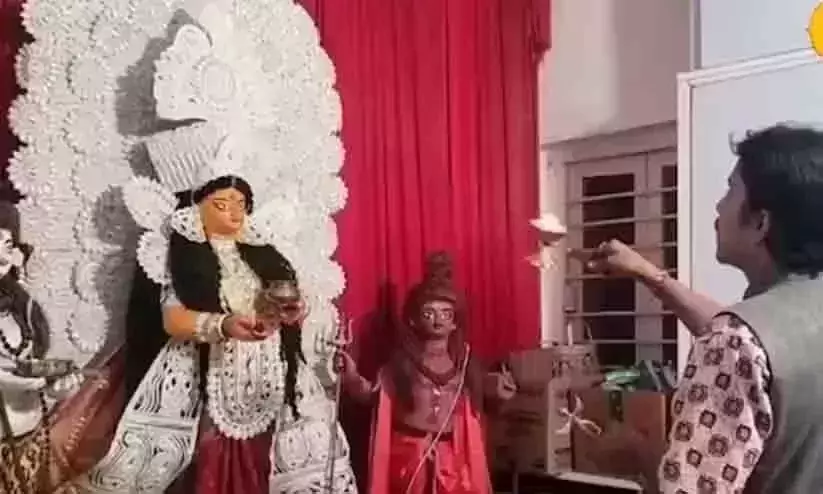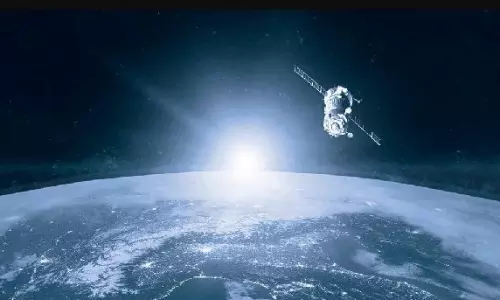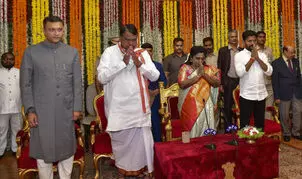
Article 370 abrogation: SC to deliver verdict on Dec 11
text_fieldsNew Delhi: The Supreme Court is set to announce its verdict on Monday regarding the constitutional validity of the Centre's decision on August 5, 2019, to revoke the special status granted to Jammu and Kashmir under Article 370. This comes in response to a series of petitions challenging the abrogation of Article 370.
According to the cause list for December 11 (Monday), uploaded on the apex court's website, a five-judge Constitution bench headed by Chief Justice D Y Chandrachud would deliver the verdict.
The bench which also includes Justices Sanjay Kishan Kaul, Sanjiv Khanna, B R Gavai and Surya Kant, reserved its verdict in the matter on September 5 after a 16-day hearing.
During the hearing, the top court heard Attorney General R Venkataramani, Solicitor General Tushar Mehta, senior advocates Harish Salve, Rakesh Dwivedi, V Giri and others on behalf of the Centre and the intervenors defending the abrogation of the provisions of Article 370.
Senior advocates, including Kapil Sibal, Gopal Subramanium, Rajeev Dhavan, Zaffar Shah and Dushyant Dave, had argued on behalf of the petitioners.
 Also Read - Madhya Pradesh temple takes sanitary pads, cups as offering
Also Read - Madhya Pradesh temple takes sanitary pads, cups as offering
The lawyers delved into various issues, such as the constitutional validity of the Centre's decision to abrogate the provisions of Article 370 and the validity of the Jammu and Kashmir Reorganisation Act, which divided the erstwhile state into two Union territories.
They also examined the challenges to the imposition of the governor's rule in Jammu and Kashmir on June 20, 2018, and the imposition of the president's rule on December 19, 2018, and its extension on July 3, 2019.
The petitions challenging the abrogation of the provisions of Article 370 and the validity of the Jammu and Kashmir Reorganisation Act, 2019 that divided the erstwhile state into the Union territories of Jammu and Kashmir and Ladakh were referred to the Constitution bench in 2019.
The arguments in the matter had commenced on August 2.
During the hearing, the apex court had asked who can recommend the revocation of Article 370 in Jammu and Kashmir when no constituent Assembly, the concurrence of which is required before taking such a step, exists there.
The top court had also asked how can a provision (Article 370), which was specifically mentioned as temporary in the Constitution, become permanent after the tenure of the Jammu and Kashmir constituent Assembly came to an end in 1957.
Some of the petitioners opposing the repeal of Article 370 had argued that the provision could not have been abrogated as the term of the Jammu and Kashmir constituent Assembly ended in 1957 after it drafted the erstwhile state's Constitution.
With the constituent Assembly having become extinct, Article 370 acquired a permanent status, they had said.
The Centre had argued that there was no "constitutional fraud" in annulling the provision that accorded the special status to the erstwhile state of Jammu and Kashmir.
With PTI inputs

























